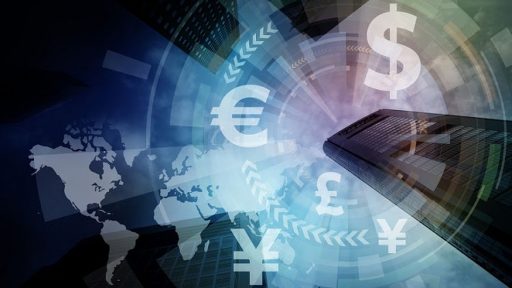- Home
- >
- Fundamental Analysis
- >
- Anatomy of trade war and everything we need to know about it

Anatomy of trade war and everything we need to know about it

Trump's announcement of tariffs on steel and aluminum has sparked worries around the world about trade war. However, just a few minutes ago, the new import duties became reality - 25% on steel and 10% on aluminum.
On Friday, last week, Trump said that "when a country loses billions of dollars in trade with virtually every country it trades with, trade wars are good and very easy to make."
This is not that simple, of course. Here's all we need to know about the so-called trade war.
What is it?
The trade war is the result of protectionism. It arises when countries begin to impose additional duties on imported goods, change their import quotas and unilaterally rules on existing trade agreements such as NAFTA. In the course of a trade war, the domino effect is very often observed, with more and more countries imposing different tariffs on imported goods. This, of course, leads to an escalation of economic tension.
Why are everyone talking about a trade war?
With his statement last week, Trump literally shocked the investor community, as the US is actually the world's largest importer of steel and aluminum, and such action will lead to a significant price increase, and hence a decline in exports. Earlier today, the White House reported that, despite the Trump charges, the administration is open to negotiating with each country and ready for changes to the agreements as long as they are fair for both sides.
What kind of tariffs are there?
The tariff is a tax or duty that the government places on a particular class of commodities (in this case raw materials). In theory, this makes the goods in question more expensive and therefore less desirable to consumers.
Why does the US want to place a tariff exactly on steel and aluminum?
Trump's goal is to protect the local industry by supporting US producers who will not have to pay a dime. The hope is that as steel and aluminum from other countries become more expensive due to new taxes, more companies will turn to American steel and aluminum producers to fill demand. Theoretically, it will bring new life to industries that have been struggling with imports for years.
Well, in theory, but will it actually help the US economy?
And yes and no. US steel and aluminum producers are sure to take a sip of air, but what worries consumers and Wall Street is whether these manufacturers will be able to meet a significant leap in demand for US steel and aluminum.
If this turns out to be a real hindrance to US consumers of these metals, such as Ford, General Motors and Boeing, there will be two options - to increase the price of their goods or to cut down some of their staff in an effort to keep their competitors competitive. If we add the retaliation from other countries around the world, things get a whole new dimension.
Why do other countries dislike the tariffs in question?
First of all, they are interested in the negative impact they will have on their domestic steel and aluminum industries, deteriors sales and the labor market.
How will they react?
There are many countries involved, and what they intend to do is take retaliatory measures. For example, the EU says it is ready to impose additional duties on Harley Davidson, Burbana and Levi's.
Let's specify. What does China have to do with all this?
In the past, the president's rhetoric regarding steel has turned its attention to China, the world's largest exporter of steel. According to Trump, flooding the cheap and surplus steel market makes it impossible for US steel companies to compete.
Whether the war will erupt now depends largely on China's reaction. The country remains unanswered. China, however, threatened to be a tough negotiator in response to the steel and aluminum tariffs of the past. There are a number of industries in the US against which China can avenge if it chooses to do so. The Trump administration is also investigating the theft of intellectual property from China. The result of this investigation can be a response to Beijing.
Which US industries could be affected by the response?
Exports of soybeans are considered the most vulnerable, but even if it's completely negative its impact on the economy will be like a drop at sea compared to damage to Boeing, Intel, Qualcomm and Apple.
What next?
To a large extent, everything depends on China, but let's not forget that the White House remains available for negotiation. Taking into account the quiet behavior of the EU and Canada and the fact that the White House remains at the negotiation point, we believe that the outcome of Trump's loud comments will materialize in the form of tariffs targeting only China.
Source: Bloomberg Pro Terminal
Jr Trader Petar Milanov
 Varchev Traders
Varchev Traders Read more:
If you think, we can improve that section,
please comment. Your oppinion is imortant for us.











